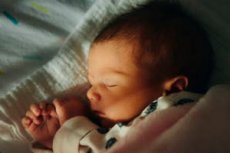Most young women treated for breast cancer can have children
Sist anmeldt: 14.06.2024

Alt iLive-innhold blir gjennomgått med medisin eller faktisk kontrollert for å sikre så mye faktuell nøyaktighet som mulig.
Vi har strenge retningslinjer for innkjøp og kun kobling til anerkjente medieområder, akademiske forskningsinstitusjoner og, når det er mulig, medisinsk peer-evaluerte studier. Merk at tallene i parenteser ([1], [2], etc.) er klikkbare koblinger til disse studiene.
Hvis du føler at noe av innholdet vårt er unøyaktig, utdatert eller ellers tvilsomt, velg det og trykk Ctrl + Enter.

A new study from researchers at Dana-Farber Cancer Institute brings encouraging news for young breast cancer survivors who want to have children.
The study, which tracked nearly 200 young women being treated for breast cancer, found that most of those who tried to get pregnant within an average period of 11 years after treatment, were able to get pregnant and give birth to a child.
The results, which will be presented at the annual meeting of the American Society of Clinical Oncology (ASCO) in 2024, are especially significant because they answer several questions left open by previous studies studies of pregnancy and live birth rates among breast cancer survivors, study authors say.
"Previous studies were limited because they included select subgroups of patients, followed patients for a relatively short period of time, and did not ask participants whether they were trying to get pregnant during the study period," says senior study author Anne Partridge, MD., MPH, is the founder and director of the Young Adult Breast Cancer Program at Dana-Farber Institute. "This study was designed to address these gaps by tracking pregnancy and live birth rates among a group of breast cancer survivors and patients who indicated that they had tried to become pregnant after their cancer diagnosis."
The patients in the study were participants in the Young Women's Breast Cancer Study, which tracks the health of a group of women diagnosed with breast cancer before the age of 40. Of 1213 eligible participants, 197 reported attempting to become pregnant during a mean follow-up period of 11 years. In this group, the average age at diagnosis was 32 years, and the majority were diagnosed with hormone-positive breast cancer. Participants were periodically asked whether they had tried to become pregnant and whether they had succeeded in conceiving and delivering a child.
During the study, 73% of women who tried to become pregnant achieved pregnancy, and 65% had a live birth, the researchers found. Those who chose fertility preservation by freezing eggs/embryos before cancer treatment had higher live birth rates, while older participants had lower pregnancy and live birth rates.
Study participants had breast cancer ranging from stage 0, which is non-invasive and confined to the milk duct, to stage III, where the cancer has spread to the lymph nodes. The researchers found that disease stage at diagnosis was not statistically associated with achieving pregnancy or live birth.
“For many young women with breast cancer, the ability to have children after treatment is an important issue,” said study first author Kimia Soruri, MD, MPH, of the Dana-Farber Institute. “The results of our study may be useful in counseling patients on fertility issues. The finding that pre-treatment egg/embryo freezing was associated with higher live birth rates highlights the need for availability of fertility preservation services for this patient population."
